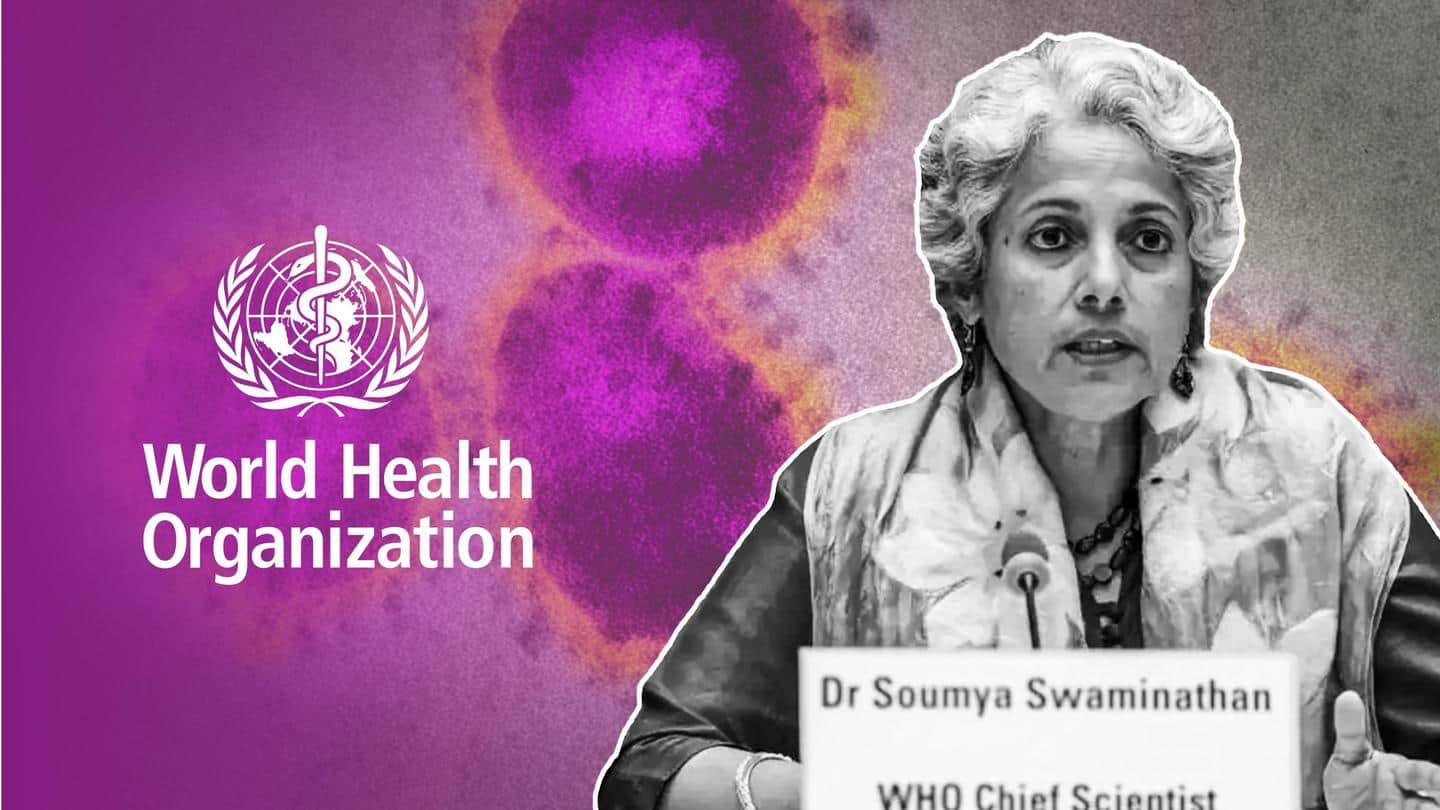
Pandemic not over, new variant can arise anywhere: WHO scientist
What's the story
The World Health Organization's Chief Scientist Dr. Soumya Swaminathan has said the COVID-19 pandemic is not over, as some people suggest.
"I don't think anybody can predict (when the pandemic will end)...A variant can arise anywhere, and you're back to square one," she said.
She urged people to continue following all precautions.
We will be in a much better position by 2022-end, she added.
Context
Why does this story matter?
Dr. Swaminathan's comments came at a time when governments across the world are willing to put COVID-19 behind them.
The WHO has already warned that Omicron will not be the last Variant of Concern (VoC) and the possibility of new variants emerging remains very high.
"Quite frankly, the variants are the wild card," WHO's COVID-19 Technical Lead Maria Van Kerkhove had said on Tuesday.
Coronavirus origin
What did Swaminathan say about origin of coronavirus?
Dr. Swaminathan told Bloomberg that all newly emerged viral infections—HIV, Zika virus, Ebola, SARS, and MERS—have been zoonotic infections.
"They emerge from an animal and then sometimes through an intermediate host," she said.
The genetic sequences of SARS-CoV-2 point toward an origin, perhaps from bats, she said.
However, it remains unclear how, when, and where that jump from animals to humans happened, she added.
Swaminathan
Takes years to understand origins of viruses: Dr. Swaminathan
Asked whether it is unusual that SARS-CoV-2's origins still remain unclear, Dr. Swaminathan said it is not odd as it has taken years to understand the origins of viruses in past.
"It took several years to know that SARS came from civet cats and MERS was spread from camels" and HIV from chimpanzees, she highlighted.
Lab-leak
Lab-leak theory not ruled out
Dr. Swaminathan did not rule out the theory that the coronavirus possibly leaked from China's Wuhan Institute of Virology, calling for more studies in this regard.
Scientists who led investigations in China conjectured that the virus most likely came from an animal, she said.
It remains unclear whether that animal was wild, domestic, or a domesticated wild animal, she added.
WHO
WHO could've handled things better: Dr. Swaminathan
Dr. Swaminathan contended that the WHO could have done things differently and better during the pandemic.
"When a public health emergency of international concern was declared, there were fewer than 100 cases, two infections outside China, and no deaths."
"Very few countries took it seriously," she said, adding, "nobody was prepared for what happened a few weeks later in Europe...then in the US."
Quote
'WHO needs more power to investigate outbreaks'
Dr. Swaminathan further said that the WHO needs more power, "especially to investigate outbreaks that could lead to pandemics." She called upon the WHO's 194 member states to agree on a set of rules to empower the agency to lead such investigations.
Vaccination
Vaccination shortage leading to new variants: Dr. Swaminathan
Dr. Swaminathan also said that the lack of vaccinations could be contributing to the emergence of new variants.
"85% of people in Africa have not received their first dose," she said.
"This is a recipe for letting new variants develop because a virus is transmitting unchecked," she added.
Her response came to a question highlighting the vaccination disparity between wealthy and poor nations.
Quote
We will learn how to live with coronavirus: Dr. Swaminathan
Dr. Swaminathan said people would learn to live with the coronavirus, like with other respiratory viruses. "We'll have much better surveillance systems globally...if you have an ordinary respiratory infection or flu, it's good to keep your mask on. We should take that into the future."